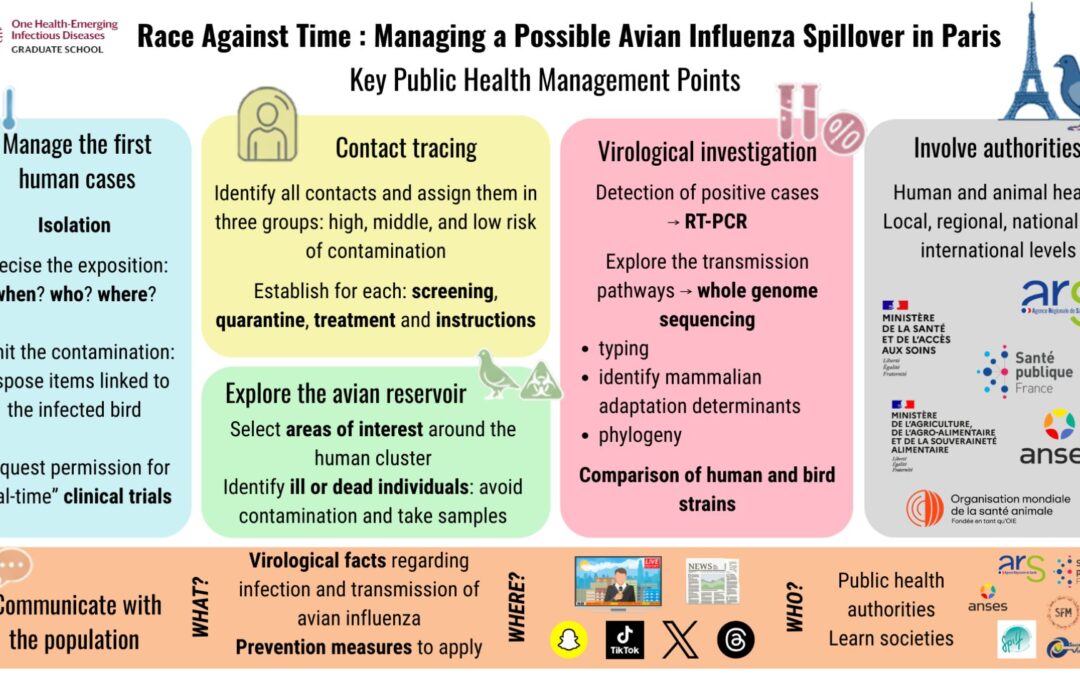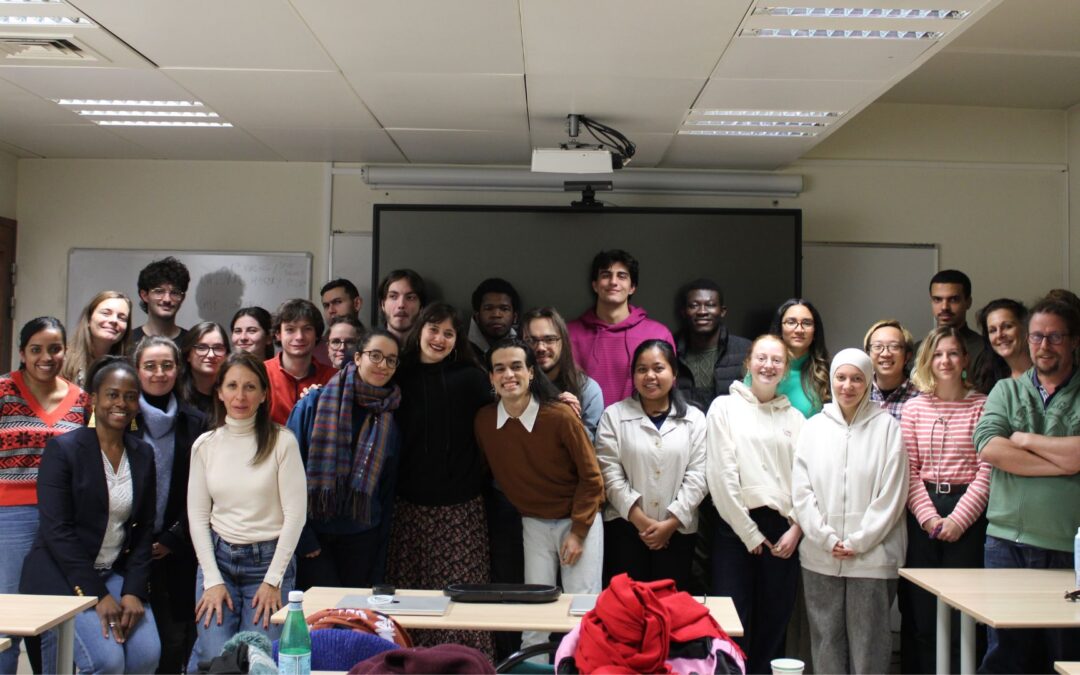Doctoral schools
The Graduate School of One Health-Emerging Infectious Diseases is committed to training the next generation of researchers in the crucial field of One Health and emerging infectious diseases. Its doctoral programme provides numerous opportunities for students interested in cutting-edge research in this vital area
Students admitted to the doctoral programme benefit from a wide range of funding opportunities, with thesis scholarships available to support them financially throughout their doctoral studies. These scholarships may cover tuition fees, living expenses, and other research-related expenses.
Additionally, the Graduate School offers end-of-thesis scholarships to assist students in completing their research and thesis writing. These scholarships can be crucial in enabling them to fully focus on finalising their academic work without worrying about financial constraints.
To encourage international mobility and knowledge exchange, the Graduate School also provides short-term funding for international mobility scholarships. These funds enable students to participate in exchange programmes, internships abroad, or research collaborations at other renowned institutions worldwide.
Furthermore, funding is available to support students’ participation in conferences, seminars, and other relevant academic events. This initiative aims to encourage the dissemination of students’ research and foster their integration into the international academic community.
Through these various funding opportunities, the Graduate School of One Health-Emerging Infectious Diseases strives to create an environment conducive to cutting-edge research and to support students in their academic and professional journeys.
The five doctoral schools associated with the Graduate School bring a wealth of expertise and resources in key areas related to One Health and emerging infectious diseases. Each of these doctoral schools offers a unique and complementary academic framework, allowing students to benefit from comprehensive interdisciplinary training.
By closely collaborating with these five doctoral schools, the Graduate School provides students with a diverse and multidisciplinary learning environment, fostering innovation and excellence in research on emerging infectious diseases.
Discover our doctoral schools…
Agriculture Food Biology Environment Health
ABIES – DS 581
The ABIES doctoral school focuses on key areas of agriculture, food, biology, environment, and health. It provides a stimulating research environment, bringing together high-level research teams. Doctoral students benefit from specialised training tailored to their research projects and career ambitions.
The doctoral school also promotes international openness and provides personalised support for the professional integration of its students. ABIES is jointly accredited by several renowned institutions, thus strengthening its academic excellence and interdisciplinary collaboration.
Bio Sorbonne Paris Cité, department of Infectiology-Microbiology
BioSPC – DS 562
The BioSPC doctoral school, resulting from the merger of two renowned schools, offers a wide range of biology fields, with welcoming laboratories for doctoral research. It accompanies doctoral students at every stage of their journey, from recruitment to thesis defense, including team coordination, training, and individual support.
The doctoral school promotes scientific exchanges among doctoral students and offers professional training activities. It also provides practical support for various procedures such as registrations, international mobility, and thesis defenses.
Complexité du Vivant
DS 515
Médicament Toxicologie, Chimie et Imagerie
MTCI – DS 563
Pierre Louis of Public health
Epidemiology and Biomedical Information Sciences – DS 393
Science des Sociétés
DS 624
Read more
![[Call for applications] 3-year doctoral contracts to French or international students](https://one-health-eid.u-paris.fr/wp-content/uploads/sites/26/2026/02/Appel_021-1080x675.jpg)
[Call for applications] 3-year doctoral contracts to French or international students
The 1H-EID Graduate School awards 3-year doctoral contracts to French or international students. The call will be open from March 20th, 2026 to April 17th, 2026 at 1:00 PM CET CET, for a contract commencement on September 1st, 2026. Please note that this call is...

Case study: the hidden journey of a disease outbreak
Imagine you are having lunch with family or out with friends when suddenly a news alert appears on TV or social media: new cases of influenza are spreading across your country. Have you ever wondered what happens before this information reaches you? This is the...

A Look Back at the 1H-EID Graduate School Webinar Series
The Graduate School One Health Emerging Infectious Diseases (1H-EID) has successfully launched two exciting webinar series that bring together researchers, practitioners, and students around critical health issues and pandemic preparedness. One Health Research in...

From The Field Week: A Unique Learning Experience
We're thrilled to share highlights from this year's "From the Field" teaching unit, a distinctive and dynamic component of the Graduate School One Health Emerging Infectious Diseases (1H-EID) program, expertly organized by Solen Kernéis, Loïc Epelboin, and Nathan...
